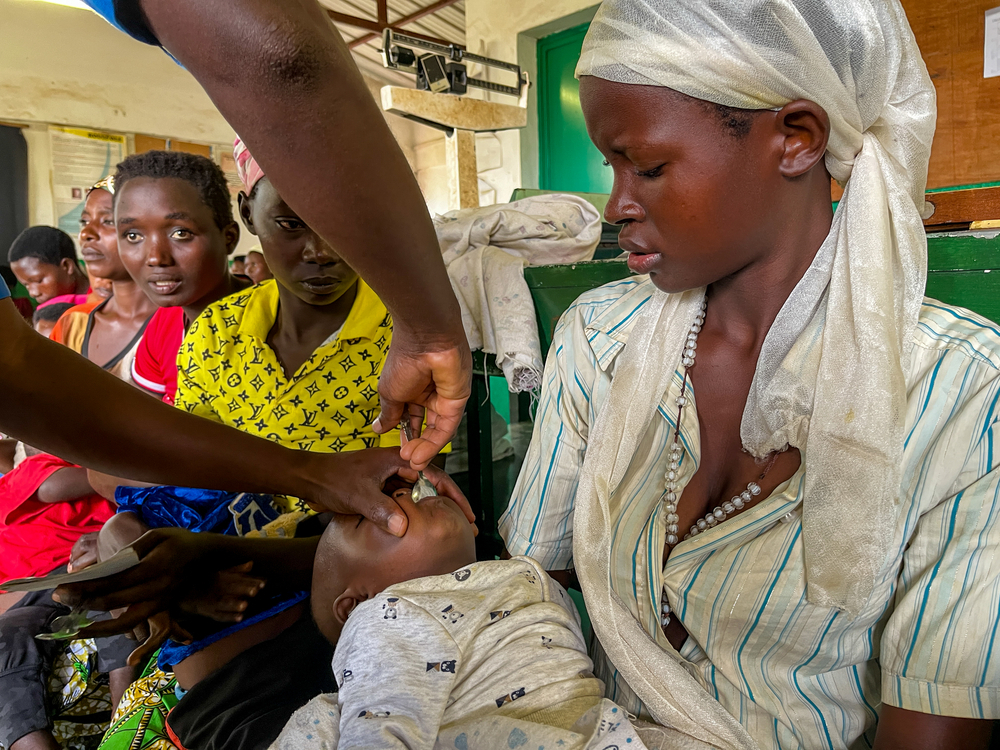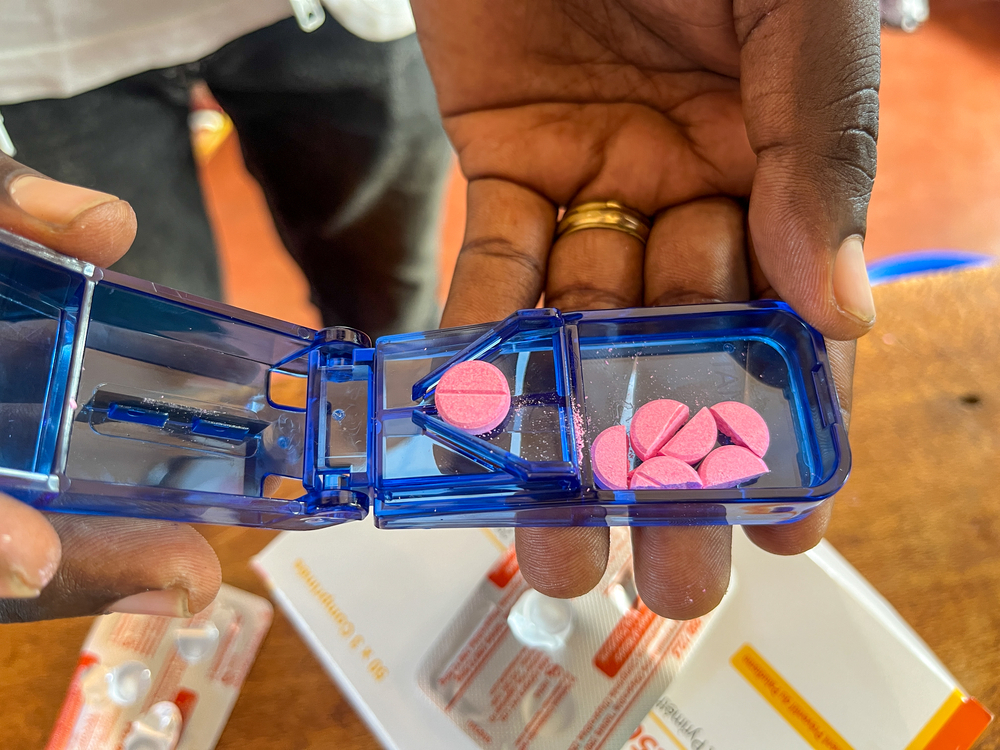In Burundi, malaria has been the leading cause of hospitalisation and death among young children for years. To reduce the risks and consequences of this life-threatening disease, MSF has introduced an innovative ‘triple protection’ approach in one of the country’s most affected regions.
Malaria is a major public health issue in Burundi. In this country of around 14 million people, several million cases are reported each year. According to the WHO, more than 1,800 malaria-related deaths were recorded in 2023, mainly among children under the age of five.
Geographical, climatic, ecological, health, and socio-economic factors all contribute to the endemic nature and scale of the disease. To combat it, the health authorities and their partners have been implementing various strategies over the years: mosquito net distribution, preventive treatments, indoor spraying, and—since the end of 2024—the introduction of malaria vaccination.
Combining approaches for better protection
In this context, Médecins Sans Frontières (MSF) and the Ministry of Health have launched a unique initiative in the country: combining three preventive measures on a large scale, simultaneously, in one of the health districts most affected by malaria—Cibitoke.
Cibitoke is the only health district in the country where this three-pronged strategy is being implemented. The aim is to drastically reduce the incidence of malaria among young children through the combined effect of these three interventions. Nearly 17,900 children are covered by the programme.
“Vaccination and preventive treatment reinforce each other to ensure optimal effectiveness,” continues Zakari Moluh. “By adding physical protection through mosquito nets, we aim to provide the best possible defence for children under five—the most vulnerable age group.”
A valuable and inexpensive strategy
In practical terms, MSF teams are supporting 20 health centres across the district to implement this approach. At these centres, each child receives four doses of the RTS,S malaria vaccine between the ages of six and 18 months. At the time of the first vaccination, the family is given an insecticide-treated mosquito net. Between the ages of nine and 24 months, these children also receive additional protection in the form of sulfadoxine/pyrimethamine tablets, known as ‘perennial malaria chemoprevention’ (PMC).

The Kaburantwa Medical Centre is one of the facilities MSF supports as part of this programme. On site, the size of the wait line in front of the vaccination service reflects parents’ eagerness to protect their children.
“When he was younger, my son often suffered from malaria. He was even hospitalised and had to receive a blood transfusion,” says Claudine Tuyishimire as she leaves the centre after having her youngest child, nine-month-old Fanny, vaccinated. “When they explained the protection available today, I didn’t hesitate. I came straight away. Thanks to this, children will rarely fall ill, and parents will no longer have to come to the hospital so often.”
Across all the centres involved in implementing this approach, the enthusiasm is similar. Waiting rooms remain full. This high turnout is also the result of awareness and follow-up campaigns conducted by community health workers among families and associations, particularly women’s groups.
MSF work with the Ministry of Health in Cibitoke shows that implementing this system is both simple and inexpensive compared to the benefits it brings. Malaria vaccination and mosquito net distribution are already integrated into the health system, and preventive treatment drugs are low-cost. The approach is therefore easily absorbed by the health system and replicable elsewhere in the country.

The ongoing need for treatment
The strategy already appears to be yielding strong results. MSF teams have observed a significant decrease in malaria admissions since the third quarter of 2025, compared to the same period last year.
However, to scientifically evaluate the precise impact of this combination of interventions on malaria reduction, a dedicated MSF team has been conducting operational research for several months. The results will inform the Burundian health authorities and technical partners on the effectiveness of this approach, helping them make the best choices for their malaria control strategies.
“In a context of resource rationalisation, linked to the overall decline in humanitarian funding, making the most effective and scientifically proven choices is absolutely essential,” continues Adélaïde Ouabo. “We are happy to contribute to this effort.”
While strengthening prevention is the core objective of MSF’s project, the urgent need to treat children with malaria remains. MSF teams continue to support the health authorities in providing care.
In villages, MSF-trained community health workers can quickly detect malaria symptoms, perform rapid diagnostic tests, and administer treatment if the result is positive.
When more serious cases are identified, they are referred to one of the MSF-supported health centres, where medical supervisors help strengthen care delivery. In emergencies, an ambulance is available to transfer patients to the district hospital in Cibitoke. There MSF teams
support the management of the most complex paediatric and intensive care cases, with staff dedicated to training and mentoring local doctors and nurses.
In 2023, an estimated 95% of the 597,000 global malaria-related deaths occurred in Africa. The disease remains a major emergency across much of the continent, especially in Sub-Saharan Africa.
-
Related:
- Malaria
- MSF in Burundi












